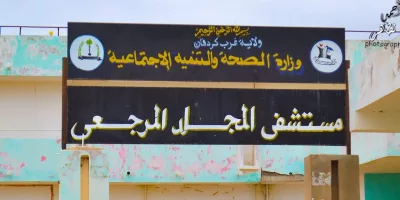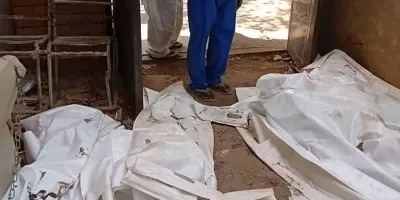News briefing
Translated and edited by: Committee for Justice
Geneva: 5 September 2022
UN experts have warned that intimidation and harassment of Sudanese human rights defender Salima Ishaq Al Khalifa, who works to combat violence against women in the country, may be retaliatory for her cooperation with the United Nations in the field of human rights.
Cooperation with United Nations mechanisms:
This came in a UN memorandum sent to the Sudanese authorities on July 6, 2022, which has not yet been responded to. The experts indicated that among the reasons for targeting her by the Sudanese security forces was the work of Khalifa in the defense of human rights, as director of the unit to combat violence against women in the Ministry of Social Development in Sudan since November 2019, as well as her previous work as Director of the Trauma Awareness Office at the Trauma Center at Al-Ahfad University for Girls in Omdurman, Sudan, monitoring and documenting the alleged killings, rapes and sexual violence committed by the security forces against a sit-in at the military headquarters in Khartoum on July 3, 2019.
The experts also added that Khalifa cooperated with UN bodies and mechanisms in the context of its work in the field of human rights, most notably monitoring information related to cases of sexual violence, and coordinating access to medical, legal and psychosocial assistance as part of the working group established by the UN High Commissioner for Human Rights in Sudan.
Summons, interrogations and accusations:
The experts stated that on April 7, 2022, Al-Khalifa was summoned by the Office of the Prosecutor for Crimes against the State of Sudan, and asked if she had provided information to the Special Representative of the Secretary-General for a UN Security Council briefing on March 28, 2022, and a preliminary investigation was opened with her for “crimes against the state,” under Article 47 of the Code of Criminal Procedure.
The experts added that a man in the Public Prosecutor’s Office, suspected of being an officer in the General Intelligence, asked her about the names, ages, marital status, and addresses of victims of sexual and gender-based violence she had documented, and she refused to provide this information, then was released on bail on the evening of April 7.
The experts explained that on April 12, 2022, Al-Khalifa was brought for interrogation for the second time at the Public Prosecutor’s Office for crimes against the state, as she was allegedly interrogated about a report submitted by the Unit for Combating Violence Against Women to the National Mechanism for Reporting and Follow-up on sexual violence committed in Khartoum during the protests. On December 19, 2021, upon her departure after interrogation, an arrest warrant was issued against her for “cybercrime” by an officer from the General Intelligence Service. She was later released on bail that day.
Concern about intimidation:
The experts expressed deep concern about the multiple interrogations and the alleged multiple charges against Al-Khalifa, which appear to be an attempt to intimidate her due to her work collecting information about sexual assault and rape by security forces and other individuals.
The experts also expressed their concerns that the targeting of “Al Khalifa” is in retaliation for her cooperation with the United Nations in the field of human rights, and that if this is proven to be true, this would be a very reprehensible violation of the work and rights of women human rights defenders in Sudan.
UN demands from the Sudanese authorities:
The experts called on the Sudanese authorities to provide information on the specific charges against Al-Khalifa, in addition to their factual and legal basis, and their compatibility with Sudan’s obligations under international law.
The experts also called on Sudan to indicate any measures taken to prevent acts of intimidation or reprisals, by adopting and implementing specific legislation and policies in order to provide effective protection to those who seek cooperation or who have cooperated with the United Nations, its representatives and mechanisms in the field of human rights.
The experts also requested the authorities in Sudan to provide any information on the steps they have taken to ensure that women human rights defenders across Sudan carry out their work in a safe and enabling environment without fear of intimidation or harassment of any kind, as well as ensuring that any attacks against them are fully investigated.






